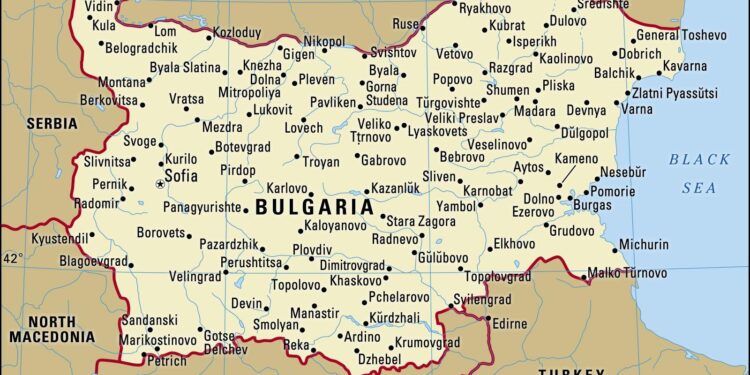Bulgaria is set to join the euro zone, marking a significant step in its economic integration with the European Union. As the country prepares to adopt the euro as its official currency, this transition promises potential benefits such as increased investment, price stability, and closer ties with other member states. However, the move has sparked a wave of concern among segments of the population who worry about the impact on national sovereignty, rising costs, and the readiness of Bulgaria’s economy for such a shift. This article examines what entering the euro zone means for Bulgaria and explores the reasons behind the mixed public reaction.
Bulgaria’s Eurozone Entry Signals Major Economic Shift and Integration Challenges
Bulgaria’s transition into the eurozone marks a substantial recalibration of its economic landscape, promising enhanced stability and closer ties with the European Union’s core financial mechanisms. This move is expected to lower borrowing costs, attract foreign investment, and simplify cross-border trade, effectively integrating Bulgaria more deeply into the European single market. However, it also comes with a set of stringent fiscal rules and monetary policies dictated by the European Central Bank, which could limit the country’s economic autonomy and flexibility in addressing local financial challenges.
Despite the anticipated benefits, not all Bulgarians are convinced this change is positive. Key concerns revolve around the potential loss of monetary sovereignty, inflation risks, and the impact on everyday prices. Skeptics warn that the swift adjustment could strain lower-income households who might not immediately reap the benefits of Euro adoption. Below is a brief overview of the main opportunities and challenges Bulgaria faces with this integration:
- Opportunities: Increased investor confidence, access to cheaper credit, streamlined trade within EU countries
- Challenges: Risk of inflationary pressure, reduced control over national monetary policy, transitional costs for businesses and consumers
- Social Impact: Public skepticism fueled by economic uncertainty and uneven benefits distribution
| Aspect | Before Euro | After Euro |
|---|---|---|
| Currency Stability | Lev pegged to Euro | Euro official currency |
| Monetary Policy | National control | ECB control |
| Inflation Risk | Managed locally | Potential rise initially |
| Trade | Some currency exchange | Seamless EU transactions |
Concerns Loom Over Inflation Risks and Sovereignty Among Skeptics
As Bulgaria prepares to adopt the euro, a wave of skepticism ripples through various sectors of society concerned about inflationary pressures and the country’s economic autonomy. Critics argue that transitioning to the euro might limit Bulgaria’s ability to tailor monetary policies suited to its unique economic conditions, potentially exposing the nation to external shocks. The fear is that Bulgaria could lose control over its inflation rates, which in the past have been managed through national currency adjustments.
Among the key apprehensions voiced by skeptics are:
- Rising consumer prices: Fears that the euro adoption could accelerate inflation, eroding purchasing power.
- Dilution of monetary sovereignty: Loss of national control over interest rates and currency valuation.
- Integration risks: Bulgaria’s economy may become vulnerable to economic policies shaped predominantly by larger Eurozone economies.
| Risk Factor | Potential Impact |
|---|---|
| Inflation Spike | Higher consumer costs |
| Monetary Policy Loss | Reduced national flexibility |
| Economic Dependence | Greater susceptibility to EU decisions |
Policy Recommendations for Smoothing Transition and Addressing Public Unease
To ease Bulgaria’s shift to the euro, authorities must prioritize transparent communication and targeted education campaigns that clarify the tangible benefits and challenges of euro adoption. Empowering citizens with clear, accessible information helps dispel myths and address anxieties surrounding price fluctuations, savings security, and national identity. Moreover, fostering dialogue between policymakers, business leaders, and local communities can cultivate trust and collective ownership of this economic milestone.
Key measures to consider include:
- Price monitoring and controls: Prevent unjustified price hikes during the dual pricing period to protect consumer purchasing power.
- Support for small businesses: Provide incentives and guidance for local entrepreneurs adjusting their accounting and payment systems.
- Social safety nets: Strengthen assistance programs for vulnerable groups potentially impacted by inflation or market turbulence.
- Multilingual resources: Offer materials in minority languages to ensure inclusivity across Bulgaria’s diverse population.
| Policy Area | Action | Expected Outcome |
|---|---|---|
| Communication | Nationwide info campaigns | Increased public confidence |
| Consumer Protection | Price surveillance | Stable living costs |
| Economic Support | Business incentives | Smoother market transition |
| Social Policy | Enhanced welfare programs | Reduced inequality risks |
Future Outlook
As Bulgaria prepares to join the euro zone, the move marks a significant milestone in the country’s economic and political integration with the European Union. While proponents highlight the potential benefits of increased investment, price stability, and easier trade, the decision has also sparked concerns among some Bulgarians wary of losing monetary sovereignty and facing possible inflation. As the country steps into this new chapter, the coming months will be critical in assessing how the transition impacts everyday life and the broader economy.
















